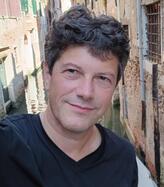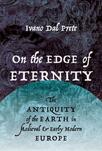Ivano Dal Prete
Early history of the Earth sciences (1200-1800); Renaissance scientific literature in the vernacular; generation in the long eighteenth century; material and visual culture of astronomy and natural history; science, religion and society
Ivano Dal Prete’s research explores various aspects of the interaction of science, religion and society between the late Middle Ages and the early 19th century. His first book (2008) reconstructs the scientific culture of the Venetian mainland in the 18th century, focusing on social and political repercussions of local controversies on the history of the Earth and on human generation. He has since published numerous articles on early modern embryology, scientific communication networks, and on the visual and material culture of 18th- and early 19th-century astronomy.
On the Edge of Eternity. The Antiquity of the Earth in Medieval and Early Modern Europe, Oxford University Press, 2022
Scienza e società nel Settecento veneto (“Science and Society in 18th-century Republic of Venice”; in Italian), Milano, FrancoAngeli, 2008.
Antonio Vallisneri. Miglioramenti e correzioni, d/alcune esperienze, ed osservazioni del signor Redi (ed., introduction and notes), Florence, Olschki, 2005 (in Italian).
“The Ruins of the Earth. Learned Meteorology and Artisan Expertise in Fifteenth-century Italian Landscapes”, Nuncius 33 (2018), 415-441.
“‘Ingenuous Investigators’: Antonio Vallisneri’s Regional Network and the Making of Natural Knowledge in Eighteenth-century Italy”, in Paula Findlen (ed.), Empires of Knowledge: Scientific Networks in the Early Modern World (Routledge, 2018), 181-204.
“Vernacular Meteorology and the Antiquity of the Earth in Medieval and Renaissance Italy”, Philosophy and Knowledge in the Renaissance: Interpreting Aristotle in the Vernacular, ed. by Luca Bianchi, Simon Gilson, and Jill Kraye (London: Warburg Institute, 2017), 139-160.
“Cultures and Politics of Preformationism in Eighteenth-century Italy”, The Secrets of Generation: Reproduction in the Long Eighteenth Century, ed. by Ray Stephenson, Darren Wagner, Toronto, University of Toronto Press, 2015, pp. 59-78.
“‘Being the World Eternal’. The Age of the Earth in Renaissance Italy”, Isis, vol. 105, n.2 (June 2014), pp. 292-317.
“Brokering Instruments in Napoleon’s Europe. The Italian Journeys of Franz Xavier von Zach (1807- 1814)”, Annals of Science, vol. 71, n.1 (2014), pp. 82-101.

